About
Members of the CIML Project team
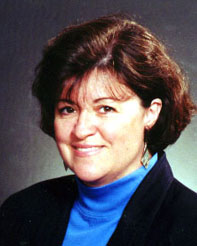
Mary Thomas (PI)
- Ph.D.
- Computational Data Scientist, HPC Trainer
- SDSC
Mary Thomas is a member of the Data Enabled Scientific Computing (DESC) division. Mary holds a Ph.D. in computational science, and M.S. degrees in computer science and physics. Her research interests include: HPC computing and training; coastal ocean modeling; cyberinfrastructure and emerging technologies, including Jupyter notebooks, interactive and cloud computing.
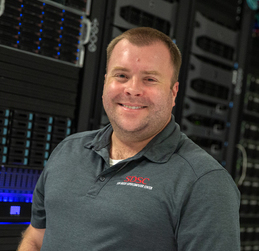
Marty Kandes (Co-PI)
- Ph.D.
- Computational and Data Science Research Specialist
- SDSC
Marty Kandes is a Computational and Data Science Research Specialist in the High-Performance Computing User Services Group at SDSC. He currently helps manage user support for Comet — SDSC’s largest supercomputer. Marty obtained his Ph.D. in Computational Science in 2015 from the Computational Science Research Center at San Diego State University, where his research focused on studying quantum systems in rotating frames of reference through the use of numerical simulation. He also holds an M.S. in Physics from San Diego State University and B.S. degrees in both Applied Mathematics and Physics from the University of Michigan, Ann Arbor. His current research interests include problems in Bayesian statistics, combinatorial optimization, nonlinear dynamical systems, and numerical partial differential equations.
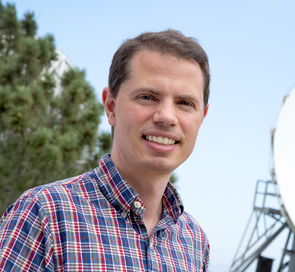
Andreas Goetz
- Ph.D.
- Research Scientist, Principal Investigator
- SDSC
Andreas Goetz leads the computational chemistry efforts at SDSC, working at the intersection of (bio)chemistry, physics, and high performance and data intensive computing. He is a contributing author to the ADF and QUICK quantum chemistry software and the AMBER software package for biomolecular simulations, which are widely used in academic and industrial research. Andreas collaborates on a variety of research projects in molecular simulation, computational enzymology, drug design, and atmospheric chemistry with support from NSF, DOE, NIH, Intel and Nvidia. Andreas also enjoys training the next generation of scientists in software engineering and numerical simulation methods via lectures, workshops and supervision of interns. He is author of over 65 scientific publications and editor of the book ‘Electronic structure calculations on GPUs’. Prior to joining SDSC in 2009 Andreas performed postdoctoral research at the VU University in Amsterdam and obtained his undergraduate and Ph.D. degrees in chemistry from the University of Erlangen in Germany.
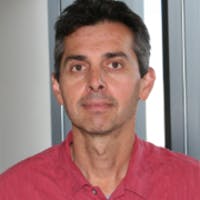
Paul Rodriquez
- Ph.D.
- Computational Data Scientist
- SDSC
Paul Rodriguez received his PhD in Cognitive Science at University of California, San Diego (UCSD) in 1999. He spent several years doing research in neural network modeling, dynamical systems simulations, time series analysis, and statistical methods for analysis and predictions in fMRI data. He has more recently been supporting HPC applications for diverse users in science and humanities, with emphasis on data mining and deep learning.
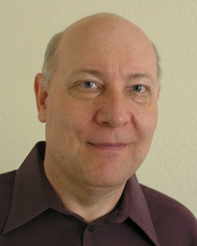
Peter Rose (Co-PI)
- Ph.D.
- Director for Structural Bioinformatics Laboratory
- SDSC
Dr. Peter Rose is the Director of the Structural Bioinformatics Laboratory at SDSC. Since joining SDSC in 2007, his group built the RCSB Protein Data Bank to its current strength as a key resource in biology and drug discovery. He currently works on NIH funded Big Data to Knowledge (BD2K) projects to enable large-scale mining of 3D macromolecular structures. Prior to joining UCSD, he held research and management positions at Pfizer La Jolla, formerly Agouron Pharmaceuticals, where he was instrumental in the establishment of the structure-based drug design platform. His research interests include structural bioinformatics, structure-based drug design, 3D visualization, and application of big data technologies and machine learning in bioinformatics and biomedicine.
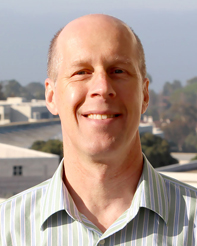
Robert Sinkovits (Co-PI)
- Ph.D.
- Director of Education and Training
- SDSC
Robert Sinkovits, Ph.D. leads the scientific applications efforts at the San Diego Supercomputer Center. He has collaborated with researchers spanning a large number of fields including physics, chemistry, astronomy, structural biology, finance and the social sciences, always with an emphasis on making the most effective use of high end computing resources. Before returning to SDSC, he was the primary developer of the AUTO3DEM and IHRSR++ software packages used for solving the structures of icosahedral and helical macromolecular structures, respectively. He has approximately 50 journal publications, book chapters and conference proceedings. He is also an avid cyclist and mountain climber, having summited nearly 300 peaks.